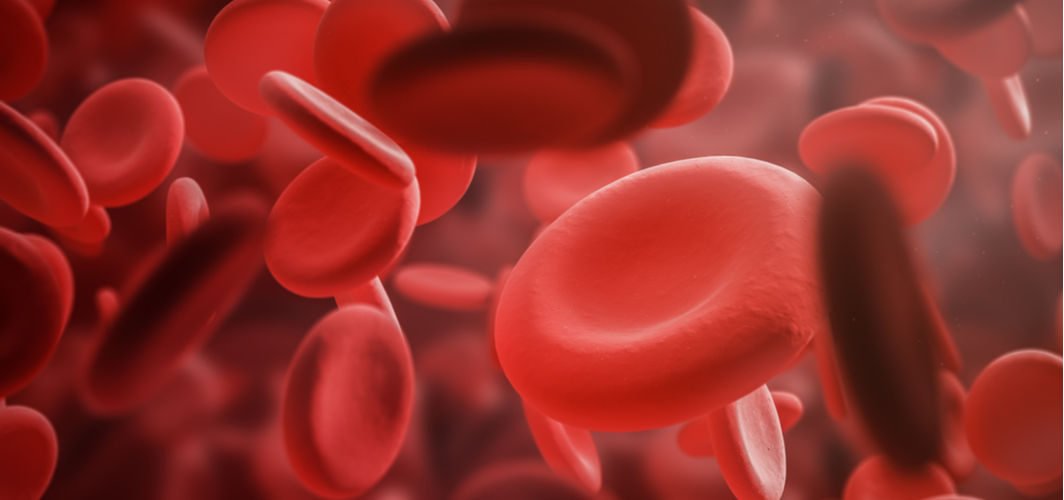General Health
T3, T4 TSH Normal Range: How To Maintain Healthy Thyroid Hormone Levels?
6 min read
By Apollo 24|7, Published on - 19 February 2025
Share this article
0
0 like

When it comes to maintaining overall health, thyroid hormones play a crucial role in regulating metabolism, energy production, and body functions. The thyroid gland produces three essential hormones: triiodothyronine (T3), thyroxine (T4), and thyroid-stimulating hormone (TSH), all of which influence various bodily functions. But how do you determine if your thyroid hormones are within a normal range? That's where thyroid function test come in.
This article will provide an in-depth look at thyroid hormone levels, their normal ranges, and how you can maintain a healthy thyroid. By the end of this guide, you will understand the significance of T3, T4, and TSH in your overall well-being and how to ensure they remain within a healthy range.
Understanding Thyroid Hormones
The thyroid is a small, butterfly-shaped gland located at the front of the neck, just below Adam's apple. Despite its size, this gland plays a crucial role in regulating numerous bodily functions by producing essential hormones. The primary hormones produced by the thyroid are triiodothyronine (T3) and thyroxine (T4), which work together to maintain overall health and well-being. These hormones are controlled by thyroid-stimulating hormone (TSH), which is produced by the pituitary gland. The proper balance of these hormones is vital for the body to function optimally.
Thyroid hormones influence several critical physiological processes, including:
- Metabolism and Weight Regulation: Thyroid hormones determine how quickly the body converts food into energy. An overactive thyroid (hyperthyroidism) can accelerate metabolism, leading to weight loss, while an underactive thyroid (hypothyroidism) can slow metabolism, causing weight gain.
- Body Temperature Regulation: The thyroid helps maintain a stable body temperature by influencing the rate at which cells generate heat. Imbalances in thyroid function may lead to symptoms such as excessive sweating or sensitivity to cold.
- Mood and Cognitive Function: Thyroid hormones affect brain function, mood stability, and mental clarity. Hypothyroidism can contribute to depression, sluggish thinking, and memory issues, whereas hyperthyroidism may cause anxiety, restlessness, and difficulty concentrating.
- Muscle Control and Strength: Proper thyroid function ensures that muscles work efficiently. Imbalances may lead to muscle weakness, cramps, or tremors.
- Digestive System Regulation: The thyroid impacts digestion by influencing bowel movements. An underactive thyroid may cause constipation, while an overactive thyroid can lead to diarrhea.
- Growth and Development: In children, thyroid hormones are essential for normal growth and brain development. Insufficient thyroid function during childhood can result in developmental delays.
- Heart Function and Circulation: Thyroid hormones affect heart rate and blood circulation. Hyperthyroidism may cause an increased heart rate and palpitations, while hypothyroidism can lead to a slower heart rate and fatigue.
Common Thyroid Function Tests
Healthcare providers use several blood tests to evaluate thyroid function and detect potential disorders. These tests help assess how well the thyroid gland is producing and regulating hormones that influence metabolism, energy levels, and overall bodily functions. Below are the most commonly recommended thyroid function tests:
1. Thyroid-Stimulating Hormone (TSH) Test
TSH is a hormone produced by the pituitary gland, which plays a crucial role in regulating thyroid activity. This test measures the concentration of TSH in the blood. Higher TSH levels may indicate an underactive thyroid (hypothyroidism), whereas lower levels may suggest an overactive thyroid (hyperthyroidism).
2. Free T4 (Thyroxine) Test
Thyroxine (T4) is one of the primary hormones produced by the thyroid gland. It is essential for metabolism, energy production, and overall growth. The "free" T4 test measures the unbound, biologically active form of thyroxine circulating in the bloodstream. Abnormal levels can indicate thyroid dysfunction, affecting metabolism and body functions.
3. Free T3 (Triiodothyronine) Test
Triiodothyronine (T3) is the more active thyroid hormone that plays a direct role in regulating metabolism. This test measures the level of free (unbound) T3 in the blood, which helps assess thyroid function, especially in cases of hyperthyroidism.
4. Thyroid Antibody Tests
These tests detect the presence of specific antibodies that target thyroid tissues, which can indicate autoimmune thyroid disorders like Hashimoto’s thyroiditis or Graves’ disease.
These tests collectively help diagnose thyroid conditions such as hypothyroidism, hyperthyroidism, Hashimoto’s thyroiditis, and Graves’ disease, enabling doctors to determine appropriate treatment options.
Normal Range of T3, T4, and TSH Levels
The normal range of thyroid hormones varies based on age, gender, and individual health factors. Here is a general reference:
1. TSH Levels by Age and Gender
2. TSH Levels During Pregnancy
During pregnancy, thyroid hormone levels fluctuate due to hormonal changes. Here is a breakdown:
Thyroid disorders during pregnancy can affect both mother and baby, increasing the risk of miscarriage, premature birth, and developmental issues. Regular thyroid monitoring is essential during pregnancy.
Causes and Symptoms of Abnormal TSH Levels
Abnormal TSH (Thyroid-Stimulating Hormone) levels can indicate underlying thyroid dysfunction, affecting metabolism, energy levels, and overall health. Understanding the causes and symptoms of high or low TSH levels is essential for early diagnosis and effective treatment.
1. Low TSH Levels (Hyperthyroidism)
If your TSH level is lower than normal, it may indicate hyperthyroidism, where the thyroid is overactive. Common causes include:
- Graves’ disease (autoimmune hyperthyroidism)
- Toxic multinodular goitre
- Excessive iodine intake
- Thyroiditis
- Overmedication with thyroid hormone replacement therapy
Symptoms of Hyperthyroidism:
- Unintentional weight loss
- Rapid or irregular heartbeat
- Nervousness and irritability
- Insomnia
- Tremors in hands and fingers
- Excessive sweating
2. High TSH Levels (Hypothyroidism)
High TSH levels may indicate hypothyroidism, where the thyroid is underactive. Causes include:
- Hashimoto’s thyroiditis (autoimmune hypothyroidism)
- Iodine deficiency
- Thyroid gland removal or radiation treatment
- Certain medications (e.g., lithium)
Symptoms of Hypothyroidism:
- Fatigue
- Weight gain
- Depression
- Slow heart rate
- Dry skin and hair
- Constipation
- Increased sensitivity to cold
Maintaining Healthy Thyroid Hormone Levels
Maintaining balanced T3, T4, and TSH levels is essential for overall health. Here are key strategies:
1. Eat a Thyroid-Friendly Diet
- Include iodine-rich foods (seafood, dairy, eggs, iodised salt)
- Consume selenium-rich foods (Brazil nuts, sunflower seeds, fish)
- Avoid excessive soy and processed foods
- Limit goitrogenic foods (cruciferous vegetables like cabbage and Brussels sprouts if eaten raw)
2. Regular Exercise
- Engage in moderate physical activity to improve metabolism and hormone balance.
- Strength training and aerobic exercises help maintain a healthy weight.
3. Manage Stress
- Chronic stress affects the hypothalamic-pituitary-thyroid (HPT) axis.
- Practice meditation, deep breathing, or yoga to reduce stress levels.
4. Get Enough Sleep
- Poor sleep disrupts hormone regulation.
- Aim for 7-9 hours of quality sleep every night.
5. Regular Thyroid Function Tests
- Get your thyroid levels checked if you experience symptoms of an imbalance.
- Routine screening is recommended for pregnant women and individuals with a family history of thyroid disorders.
Conclusion
Understanding and maintaining healthy T3, T4, TSH normal range levels is crucial for overall well-being. Thyroid function tests help detect imbalances early, allowing for timely intervention. If you suspect any thyroid-related issues, consult a healthcare provider for proper diagnosis and treatment. By following a balanced diet, managing stress, exercising regularly, and getting enough sleep, you can support your thyroid health effectively.
Take charge of your health today by scheduling a thyroid function test and ensuring your hormones are in balance for a healthier, more energetic life.
General Health
Leave Comment
Recommended for you

General Health
Can A Simple CBC Test Determine Common Blood-Related Diseases?
A complete blood count (CBC) test can help detect various disorders and conditions by measuring the strength and other aspects of different types of blood cells.

General Health
Can A Mosquito Kill?: All You Need To Know About Malaria And Its Prevention
Malaria is a potentially life-threatening disease caused by a mosquito bite. Read to know how it can be prevented and treated effectively.

General Health
These Exercises Can Reverse Muscle Ageing!
Everyone knows that doing exercise is good for us. Its numerous health benefits are widely known. It’s also not news that exercising helps in strengthening muscles and improving their health. However, did you know that it can also help in reversing muscle ageing altogether? There have been multiple studies conducted that prove this miraculous effect of physical activity.
Subscribe
Sign up for our free Health Library Daily Newsletter
Get doctor-approved health tips, news, and more.
Visual Stories

Plant-based Foods That Are a Great Source of Iron
Tap to continue exploring
Recommended for you

General Health
Can A Simple CBC Test Determine Common Blood-Related Diseases?
A complete blood count (CBC) test can help detect various disorders and conditions by measuring the strength and other aspects of different types of blood cells.

General Health
Can A Mosquito Kill?: All You Need To Know About Malaria And Its Prevention
Malaria is a potentially life-threatening disease caused by a mosquito bite. Read to know how it can be prevented and treated effectively.

General Health
These Exercises Can Reverse Muscle Ageing!
Everyone knows that doing exercise is good for us. Its numerous health benefits are widely known. It’s also not news that exercising helps in strengthening muscles and improving their health. However, did you know that it can also help in reversing muscle ageing altogether? There have been multiple studies conducted that prove this miraculous effect of physical activity.